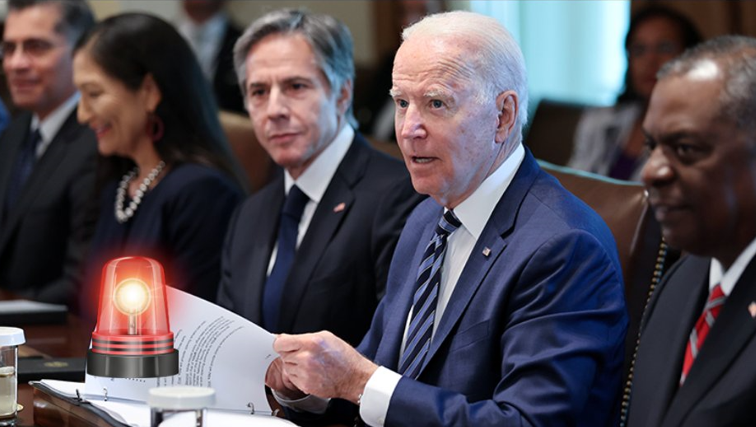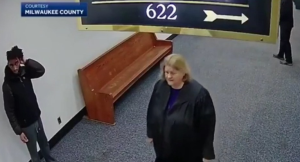Note: VIDEO at the end of the article
Washington, D.C. — House Republicans have intensified their investigation into former President Joe Biden’s alleged misuse of the autopen to authorize executive orders and federal pardons in the closing months of his presidency—some of which reportedly benefited close family members and top political allies.
The House Oversight Committee, chaired by Rep. James Comer (R-KY), issued a round of subpoenas this week demanding communications, internal memos, and authorizations related to the White House’s use of the autopen during Biden’s final months in office. The committee’s focus centers on whether Biden was mentally and physically capable of authorizing key legal actions—or whether members of his inner circle acted on his behalf, potentially without proper constitutional authority.
The subpoenas mark a significant escalation in the inquiry, which Republicans claim could call into question the validity of multiple executive decisions, including controversial pardons and policy shifts signed with the mechanical device.
Background: What Is the Autopen?
The autopen is a mechanical device traditionally used by U.S. presidents to reproduce their signature. Though long employed for ceremonial letters, mass mailings, and the routine signing of non-urgent documents, its use in matters of legal or constitutional significance is rare—and contentious.
The most well-known use of the autopen for legislation came in 2011, when President Barack Obama authorized its use to sign the Patriot Act extension while he was overseas. Though that instance stirred legal debate, it was ultimately deemed valid under existing interpretations of presidential authority.
Critics of Biden’s administration argue that the circumstances surrounding the recent autopen use are far more serious, as they allegedly involve criminal pardons, executive orders with major legal ramifications, and questions about Biden’s mental acuity.
The Scope of the Investigation
According to a senior aide on the Oversight Committee, the panel is seeking detailed records related to the following executive actions reportedly signed via autopen between November 2024 and January 2025:
-
A pardon for Hunter Biden, who was facing renewed federal scrutiny over tax and foreign business dealings;
-
A commutation of charges for Biden’s brother, James Biden, connected to an ongoing fraud investigation;
-
An executive order shielding Dr. Anthony Fauci and other federal health officials from liability related to pandemic-era decisions;
-
Several late-term regulatory rollbacks and federal appointments that were issued without public appearances or press availability from the president.
“What we’re trying to determine is whether President Biden was directly involved in these decisions,” said Chairman Comer in a recent appearance on Fox News. “The White House was issuing statements, but behind closed doors, it looks more like his inner circle was running the show—and possibly using his name without proper authority.”
Comer added, “There’s a clear constitutional expectation that certain actions must be taken by the president personally. If he wasn’t physically or mentally capable, and someone else made those decisions, then we’re talking about serious violations of law and precedent.”
Biden’s Mental Fitness Under Scrutiny
The autopen probe has emerged alongside renewed public debate over Joe Biden’s cognitive state during the final stretch of his presidency. Multiple former White House aides and Cabinet officials—speaking anonymously to several outlets—have described the president as increasingly disengaged, confused in briefings, and frequently absent from key decision-making processes after his November 2024 electoral defeat.
Some sources have claimed that by December, Biden was no longer attending high-level national security meetings, and that “intermediaries” were handling approvals for major actions. This has raised alarms among Republicans and even some Democrats about who was truly exercising executive authority during those months.
Comer noted the shift in narrative, saying, “For a year we were told Biden was in ‘great shape,’ that he was in full command. Now we’re hearing whispers that he was mentally declining—and that paints a very different picture of what may have been going on inside the West Wing.”
Legal and Constitutional Implications
Legal experts are divided on whether the use of an autopen—by itself—would be enough to invalidate a presidential action. According to constitutional law scholar Dr. Elaine Monroe, the issue hinges on whether Biden formally authorized the use of the device and remained mentally competent to do so at the time.
“If Biden understood the action and gave clear instruction for the autopen to be used, it likely falls within legal norms,” Monroe told the National Review. “But if evidence shows that the orders were issued without his consent—or worse, without his knowledge—then this crosses into highly problematic territory.”
The Biden legal team, which continues to deny any wrongdoing, has described the investigation as “a politically motivated sideshow.” In a statement, former White House Counsel Dana Remus said, “Every use of the autopen during President Biden’s tenure was fully authorized and within the bounds of legal precedent. These subpoenas are part of a broader effort to discredit a duly elected administration.”
Despite the pushback, Republicans argue that the stakes go beyond politics. “We’re not just talking about misuse of office—we’re talking about whether rogue actors within the White House bypassed the Constitution,” said Rep. Nancy Mace (R-SC), a senior Oversight Committee member. “If pardons were issued without lawful presidential intent, those pardons are invalid—and possibly criminal.”
The Road Ahead
The Oversight Committee has given current and former White House staff until June 10 to comply with the subpoenas. Targets include:
-
Former Chief of Staff Ron Klain
-
Senior Adviser Anita Dunn
-
Legal Counsel Dana Remus
-
Deputy Chief of Staff Bruce Reed
Additional subpoenas are expected for communications from executive office IT and document control staff, to trace the mechanical usage of the autopen device and authorization logs.
Republican lawmakers have signaled that the inquiry may expand further, potentially touching on 25th Amendment concerns, which address presidential incapacity, and potential abuses of pardon power under Article II of the Constitution.
Meanwhile, Democrats have accused Republicans of trying to “relitigate the 2024 election” and distract from legislative issues. “This is part of a coordinated effort to keep the Biden family in the headlines,” said Rep. Jamie Raskin (D-MD), ranking member on the committee. “There’s no evidence of wrongdoing. What we see is another desperate fishing expedition.”
Conclusion
As the political and legal drama unfolds, the autopen controversy has emerged as an unlikely flashpoint in post-presidency accountability. With new subpoenas and testimony expected in the coming weeks, the question remains: Was President Biden aware of the actions taken in his name—or was someone else pulling the strings?
One thing is certain—the investigation is no longer just about a mechanical signature. It’s about the integrity of presidential authority, and whether the most powerful office in the world was effectively controlled by unelected aides during a pivotal moment in American history.
https://rumble.com/v6trqej-republicans-issue-subpoenas-as-biden-autopen-scandal-deepens.html









